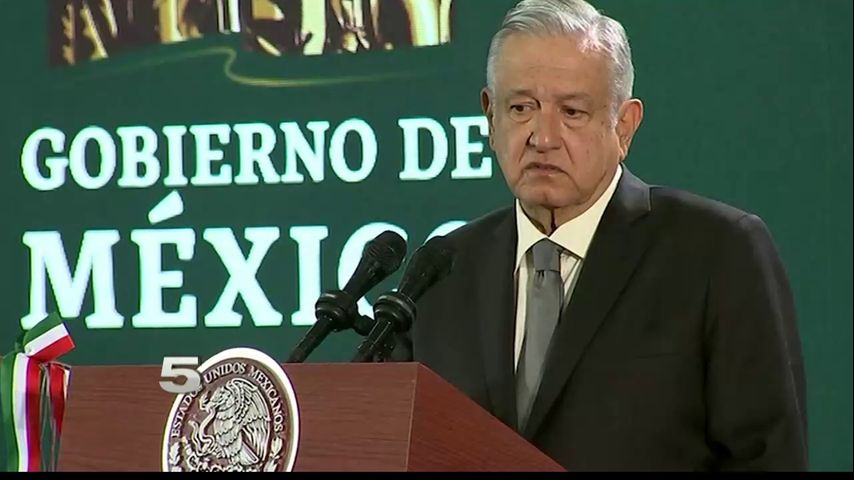Mexico's Cartel Leader Release Sets 'Dangerous' Precedent
WESLACO - The Mexican state of Sinaloa was under siege as cartel members rebelled against federal forces who had captured one of their leaders.
The Mexican government folded under pressure and released El Chapo's son, Ovidio Guzman Lopez.
Experts say this sends cartels in Mexico a dangerous message.
Ovidio Guzman Lopez is free after a brief capture.
He is one of three sons running his father's drug cartel empire in Sinaloa after Joaquin 'El Chapo' Guzman was extradited to the U.S.
Cartel members were clamoring for his release using blockades, setting police units on fire, releasing prisoners and spilling into the streets of Culiacan, Sinaloa to force a release. Scott Stewart, the Vice President of Tactical Analysis at Stratfor, says of the event, "It really shows the power that the Sinaloa cartel has there in its own turf."
Innocent people were held hostage under death threat, military families were attacked, and law enforcement, a helicopter, and police units were shot. In the end, the government relented and set him free.
In a press conference held by federal and state authorities, a journalist, exasperated, asked a question on the minds of many people, "Who is really in charge?"
Andres Manuel Lopez Obrador, Mexico's president, offered a simple answer. "How can a capture of a delinquent be more valuable than all the lives of people?"
Nine people died, and 23 were wounded. At least one civilian was reported killed, members of law enforcement wounded, and significant damage was left in the wake of the de facto siege.
Releasing the captured leader is not a surprise, explains Mexican journalist J. Jesus Lemus Barajas. It's a decision that falls in line with Lopez Obrador. Lemus Barajas says, "He had already showed his posture through his simple phrase, 'hugs not bullets.'"
Lemus Barajas has been studying Mexican cartel structures and their growth for years. He believes the government sent cartels a dangerous message by setting Guzman Lopez free. "They've given them the playbook on how to secure the release of a suspect.
In this case we're talking about Ovidio. The Sinaloa Cartel is violent, but it's nothing compared to the violence of Jalisco Nueva Generacion who has more resources, men and weapons," he explains.
US expert and Vice President at Stratfor on tactical analysis Scott Stewart agrees the move set a precedent. "The idea that we're going to have cartels running around kidnapping innocents and holding them as hostages to get these kingpins released from custody is pretty scary."
Mexico could be forced to walk-back the precedent. Lopez Obrador says they won't resort to fighting violence with violence.
Both, Barajas and Stewart, believe the approach should include the use of force but be multi-pronged.
"What would hurt these cartel organizations would be debilitating them financially and logistically," says Lemus Barajas.
He suggests stopping the flow of weapons through common entry points, targeting money laundering schemes, and creating a cartel specifically against top leaders.
Stewart adds there are other systemic problems requiring attention. "The problems there are the corruption, it's the impunity, it's the lack of the rule of law in many of these communities and areas. So, until they can address those foundational root problems, they're never going to be able to kill their way out of this cartel problem," says Stewart.
Lemus Barajas explains the release of Guzman Lopez from law enforcement custody is a federal crime.
It's illegal and can mean seven to fifteen years in prison for whoever sanctioned the release.




